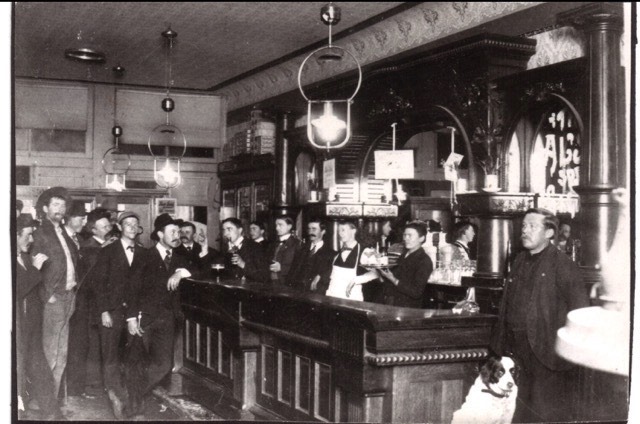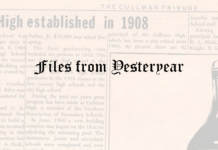
CULLMAN, Ala. – Last weekend, Cullman celebrated its German heritage, and without a doubt, beer was part of the Oktoberfest celebration. For years, alcohol sales were prohibited in Cullman, but beer finally debuted at Oktoberfest in 2011. While beer is a more recent addition to the party, beer and wine are very much a part of Cullman’s history.
In the 1880s, Cullman was home to 11 saloons, according to Cullman County Museum Director Drew Green, who said, “John Cullmann came here, and he picked this area because it reminded him of Frankweiler, Germany. Frankweiler actually translates to the ‘French people’ because it was probably in France at some time. They are known for wine. The first time I went over there, I am thinking ‘German beer,’ well, you couldn’t get a beer. You could get red wine, white wine or sparkling water.”
Cullman once had many vineyards, and a 6,000-barrel wine cellar was located near the depot, from which wine was shipped.
Said Green, “Cullman was famous for that.”
The saloons served wine and eventually beer, Green added. “They were German, so it was part of their culture. I haven’t read anything where there were any kind of serious problems.”
The Exchange Saloon was operated by J.A. McMinn and was located along First Avenue Southwest where the parking deck for Top of the Town is now. The Palace Saloon stood where Bob Wallace Appliance is today. William Richter and Al Richter ran an establishment on the Richter Corner of First Avenue and Third Street Southwest.
The Farm Saloon was run by Fuller and Sawyers advertised in The Cullman Gazette:
If you want a drink, my boy,
And never need a lawyer,
Spend your stuff at the Farm Saloon
‘Tis run by Fuller and Sawyer.
At Cullman, Alabama,
The thriving, growing town,
Fuller and Sawyer will fix you up,
If you pay the money down.
Prohibition happened, but there were known places in Cullman where alcohol was still available.
Green explained, “The monks made beer and Mr. Stiefelmeyer had a place. So, you know, it wasn’t like it was dry. You just couldn’t buy it.”
When Prohibition ended, Cullman returned to being wet, but by then, many non-Germans had moved into the area.
“That’s the period when you hear people talking about, ‘We couldn’t walk down the street because people would be passed out drunk!’” Green laughed.
During that time, saloons and hotels were plentiful, with folks from out of town coming for a little bit of fun and excitement.
In a 1998 New York Times article, “Cullman Journal: Hold Back the Barrel, It’s (Dry) Oktoberfest Time,” writer Kevin Sack wrote, “There was plenty of drinking here in the old days, with saloons and a traveling schnapps wagon that sold beer for a dime.”
There was even a spaniel dog who “worked” for Richter’s Saloon who would retrieve beers for customers.
As World War II was beginning, according to Green, the women of Cullman, along with the Baptist preachers, decided to put an end to Cullman’s partying and drinking and passed laws making Cullman dry. The city remained dry for more than 70 years until 2011. From 1982 until 2011, Cullman’s Oktoberfest was a beerless event… well, sort of.
Sack wrote in his 1998 article, “Several years ago, the owners of Stiefelmeyer Deli had smuggled in a keg of beer for an Oktoberfest party, drawing a large crowd until police arrived to haul the owners to jail. And, even today, several residents said that it is not uncommon for Oktoberfest celebrants to disappear mysteriously for a few moments after explaining that they need to check on something in their cars.”
Green shared, “Mr. Leigeber was a real character; he sold alcohol, and when it was illegal he would do elaborate things like, you would go in his place and there would be one of those big tool boxes sitting on the floor. Nobody would think anything of it, but if you tried to pick that toolbox up, it was nailed to the floor. If you opened it up, it was hollow in the bottom and that’s where you’d get your beer.”
The sneaking around is not necessary these days, as Cullman once again embraces its German roots and rolls out real kegs for its annual Oktoberfest celebration.
Copyright 2020 Humble Roots, LLC. All Rights Reserved.























